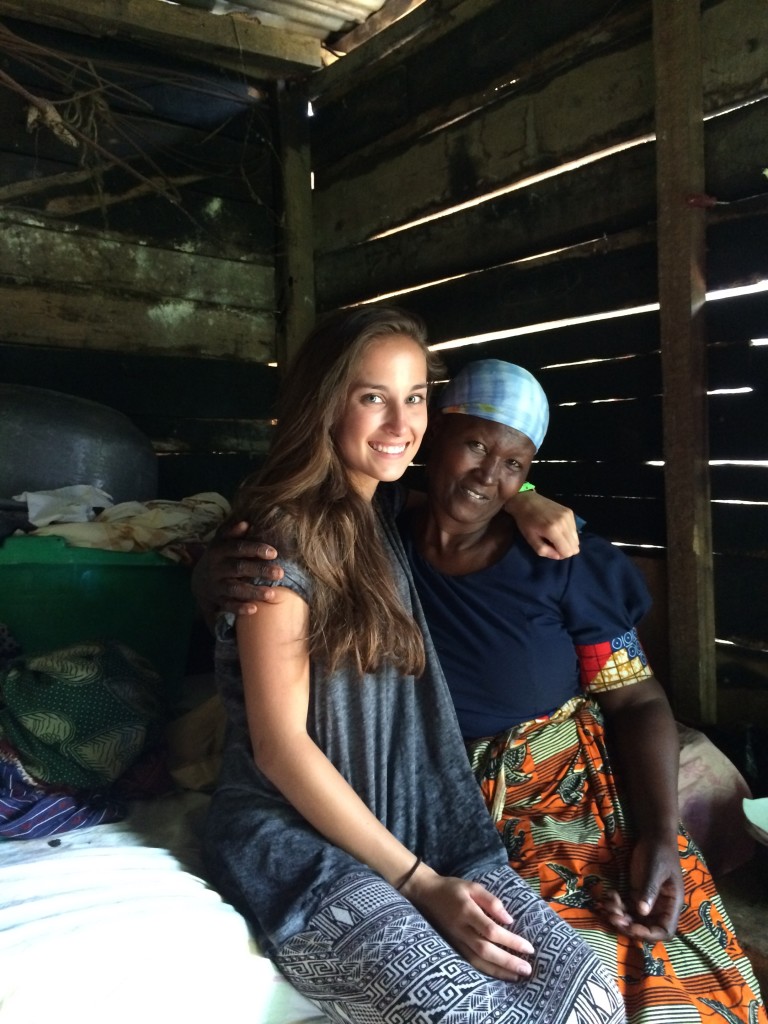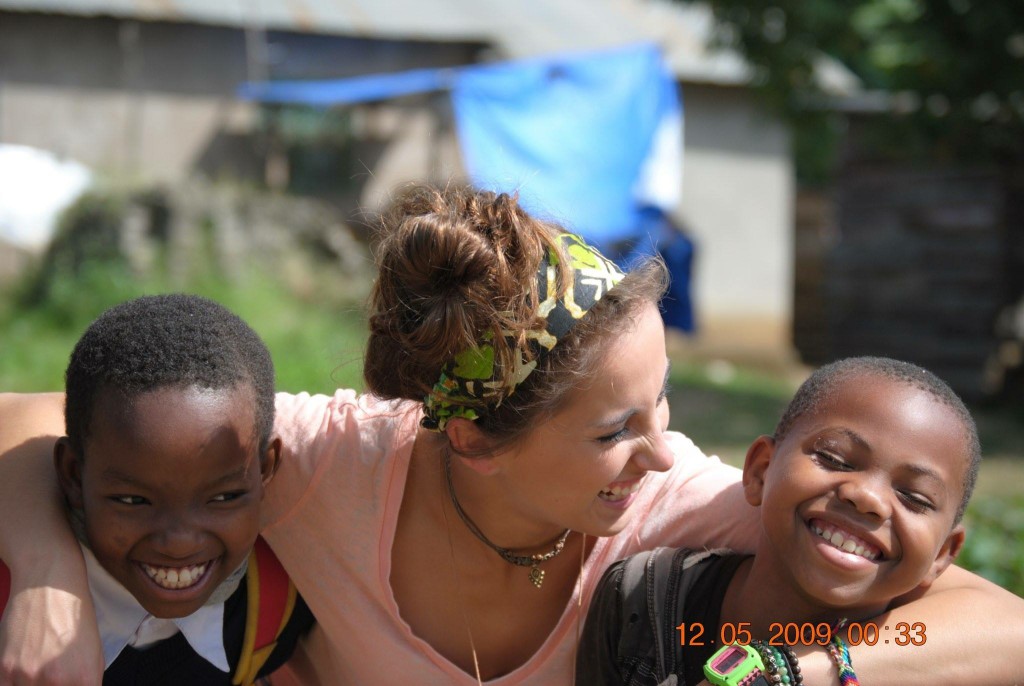Day 2
“Ask her why she… why she just dropped out of school after 4th grade,” Hungbo, one of my fellow GLA students, says to Mama Simba.
Mama Simba, acting as our translator, quickly relays the question in Swahili to Mama Neema, me and Hungbo’s host mother who speaks no English. Mama Neema looks down and to the side for a moment. She says one word quietly, her mouth hidden behind her worn, wrinkled hand. Mama Simba looks back at us.
No uniform,” she says. “She stopped going at grade 4 because she could not afford a uniform.”
When we leave the compound with her, we pass by a little boy, a member of one of the other host families. He’s wearing dirty pink converse, studded with fake crystals on the toe, laced up to his ankle. He doesn’t seem to have a care in the world that they’re girl shoes- after all, he’s still dressed “smartly”, as the Tanzanians say, in a stained white tuxedo t-shirt.
Mama Neema places her hand gently on my back anytime we get too close to the hectic road; Tanzanians seem to have no need for traffic laws. Mama Neema says something to Revelation, a “local expert” our age that’s fluent in Swahili and English. Revelation explains that Mama Neema has decided to walk behind us in order to prevent strangers from following us.
When we arrive to Mama Neema’s house (an overstatement, as I’ll explain later), we inquire after her 10 year daughter that Mama Neema told us about. Mama Neema calls her daughter’s name loudly, and the girl busts out of a tangle of lush green trees, her friend in close pursuit. She barely slows her run as she hurdles into me, enveloping me in a quick hug. Shyly, she immediately steps back, and only offers Hungbo a small wave. “They are apart of our family now,” Mama Neema explains to her.
Mama Neema shows us inside her home: “Karibu,” she says, the Swahili word for welcome. It is nothing but a small, wooden hut, 4 sides containing an area the size of my parent’s closet; I don’t compare it to that to sound snobby or wealthy, but to explain just how small this woman’s everything is compared to a small part of my life. A suitcase, presumably filled with all of her belongings, sits at the foot of her bed. She ushers us to sit down on the couch,- “Karibu”- the only other piece of furniture in the room. She then sits on the bed, smoothing the quilt as she does so. She is not ashamed. These 4 wood walls, dirt floor, and two pieces of furniture are not just her house- they are her home.
Mama Neema retrieves four eggs from the chicken coop lean-to next to the house, and her daughter fetches a bag and four avocados. She insists on carrying our gift for the rest of the day, which consisted of about an hour of walking, where she showed us the beautiful local lake.
People often think of Africa in terms of stereotypes. That it’s one big country, that there are adorable, but starving, black babies everywhere, that it’s dry and cracked and red and barren. But there are also the positive generalizations to consider, and though they are much observed and over-used cliches, they are still true. These people with so little are so rich in other ways- in generosity, in love, in happiness. Their friendliness is abounding, and opens to us strangers is refreshing. In comparison, America seems tacky, insensitive, cold, selfish, spoiled…the list goes on.
These short flashes of the Tanzanian culture I just provided do it no justice. I cannot possibly capture and convey the hearts of these people. They inspire me to change my ways, and to carry a piece of their culture within me always, even upon my return home.
Day 11
Yesterday, Sarah, one of my student’s who has chosen me as her favorite, took me to her house. Since the beginning of the week, Sarah had latched onto me- constantly holding my hand, calling me over to look at her paper, finding me as soon as recess began. I have to admit, I was nervous when she pointed to her home and dragged me over. She had given me a sponsorship letter asking me to bring her colors and coloring books earlier in the week, and I thought that her parents might pressure me similarly or put me in an uncomfortable situation; I didn’t want to make promises I couldn’t keep.
But when she gleefully dragged me by the hand to her small house, right next to the school’s campus, shouting, “Mother! Mother!!”, and I was greeted warmly with a “Karibu!”, my anxiety dissipated. Her mother invited me in, and I sat on the worn couch in the crowded living room. A few posters of Jesus hung on the wall, and odd, out of place decorations were smattered around. A fridge stood in the corner, and Sarah’s mother directed her towards it in Swahili. Sarah ran over to the fridge and grabbed out an orange popsicle (liquid since it wasn’t frozen), presenting it to me with a large smile that matched her mother’s. Her mother didn’t speak much English, but she communicated to me with nods and smiles as I tried to convey what a pleasure Sarah was to have in class. Since there wasn’t much to talk about, due to the communication barrier, I prompted Sarah to come play football with me.
As we skipped towards the field, I attempted to tear open the popsicle, and Sarah quickly took it from me to rip it open with her teeth, giving it right back with another one of her charming smiles.
Today, I met her father- they look exactly the same. He teaches English at the school, which probably explains why Sarah is so obedient and listen well. Later in the day, she found me and pressed a Worther’s candy into my palm before grasping my other hand and walking all the way back to home base with me.
As I sucked on the caramel hard candy, and the sugar melted deliciously in my mouth, I realized just how sweet this experience has been- cliche, I know. But the people I’ve met, culture I’ve been immersed in, and experiences I’ve had will forever hold a special, sweet place in my heart- a bit cheesy, but the best way to sum up how positively I feel about my time here in Tanzania.
Contributed by Bailey McNeill,
GLA Alumnus


